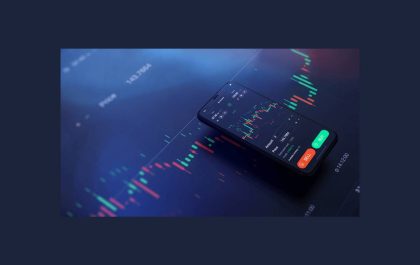NoSQL Database for Big Data: When to Use and How to Choose
Big data is getting bigger every day proving to be too large and too complex for relational databases. Fortunately, a new breed of the database has risen to the big data challenge — the NoSQL databases. A NoSQL database for big data is essential to start capturing, storing and processing all important information that can help a company make informed decisions. And yet, 95 percent of businesses say that processing unstructured data is a gap in their business.
Relational databases are leaving behind this data for several reasons.
- The schema is fixed, making it challenging and time-consuming to build a way to collect additional data from other data sources.
- Poor performance can’t keep up with modern demands and latency is too high to meet current requirements for data collection.
- Scaling the database to meet new storage requirements would cost too much to the point where it isn’t valuable.
That’s why NoSQL is so important to helping companies capture this big data to impact customer relationships and make better operational decisions.
Why a NoSQL Database is Ideal for Big Data
NoSQL can collect enormous amounts of data in real-time. These databases are distributed, meaning they can scale horizontally and take advantage of commodity servers to store massive amounts of data with incredible performance.
NoSQL is agile and can adapt to a wide range of use cases. Thanks to AI and its predictive analytics, these unstructured databases are capable of far more than they were at inception.
Because the databases scale horizontally, they can service billions of users without performance issues. The first databases came from companies like Facebook and Google who needed ways to service their enormous customer bases.
When to Use a NoSQL Database
NoSQL databases are ideal for many common applications. And with AI, they are easier to query and pull data from to the point where NoSQL can do so much of what a SQL database does.
Some common use cases for NoSQL databases include the following.
- Social applications: these require enormous amounts of unstructured data and the ability to scale as user bases increase. The need to scale can happen in a week or even one day.
- Advertising intelligence: to reach specific users, you need to be able to collect and understand billions of actions and activities. Advertising platforms need big data to power insights and target the right individuals.
- Data archiving: making data available to end-users requires the ability to house enormous amounts of data and call upon it when the user needs it. Storing document files in a flexible, schema-less format enables you to call up this data quickly when a user looks up information within an archive.
And because of the format of NoSQL databases, users can request real-time data and see it as it changes. That means that you don’t have to make information unavailable when another user is editing it, allowing you to be more agile.
The only reason to go with a SQL database today is when you absolutely must have data integrity and consistency. A common use case for this is in banking or payroll applications where the information must be exact.
Best NoSQL Database for Big Data – How to Choose
The best NoSQL database for big data is one that is multi-model, meaning it can house data of all kinds to bring together a complete view of your company. That way, you can analyze the information in one place to make better decisions and build personalized relationships with your customers.
When evaluating NoSQL databases, look for one that brings together the following data types.
- Key-value
- Document
- Graph
- Column
In addition to selecting a NoSQL database that’s multi-model, you want to look for one with integrated AI that offers predictive analytics. These systems offer the greatest value through machine learning so that data scientists can dig deep into what your data is telling you.
Finally, strong performance is essential. While NoSQL is known for being capable of handling large amounts of data at incredible speeds, not all databases are equal. Take a hard look at the database’s performance, especially when processing data in line with what your company needs. Compare YCSB bench test results for five NoSQL databases namely BangDB, Redis, MongoDB, Couchbase and Yugabyte on http://highscalability.com/blog/2021/2/17/benchmark-ycsb-numbers-for-redis-mongodb-couchbase2-yugabyte.html
NoSQL databases are transforming data processing and analytics at a rapid rate. And ultimately, the companies that lag behind in migrating systems and applications to this new way of doing things will not have the competitive power of those that do move to collect all unstructured data available to them.
Related posts
Sidebar
Recent Posts
The Best Forex Brokers for Beginners
Since COVID-19 first popped up, interest in the forex market has increased dramatically. Knowing how to get involved with minimal…
Maximizing Success: The Symbiosis of Dedicated Software Development Teams and Product Design Services
The Symbiosis of Dedicated Software Development Teams and Product Design Services In the rapidly evolving landscape of technology, businesses aiming…



